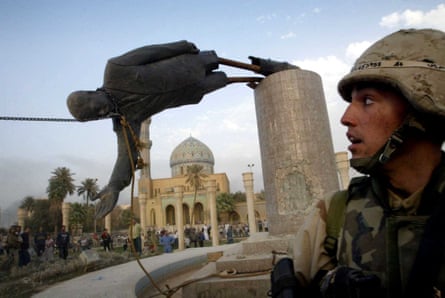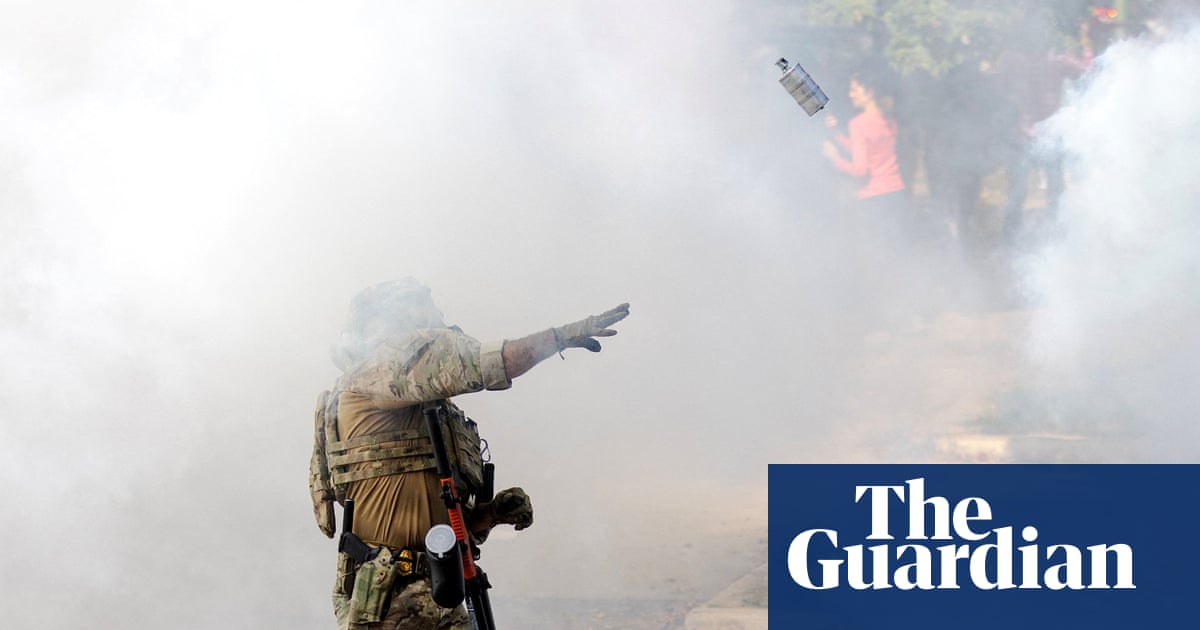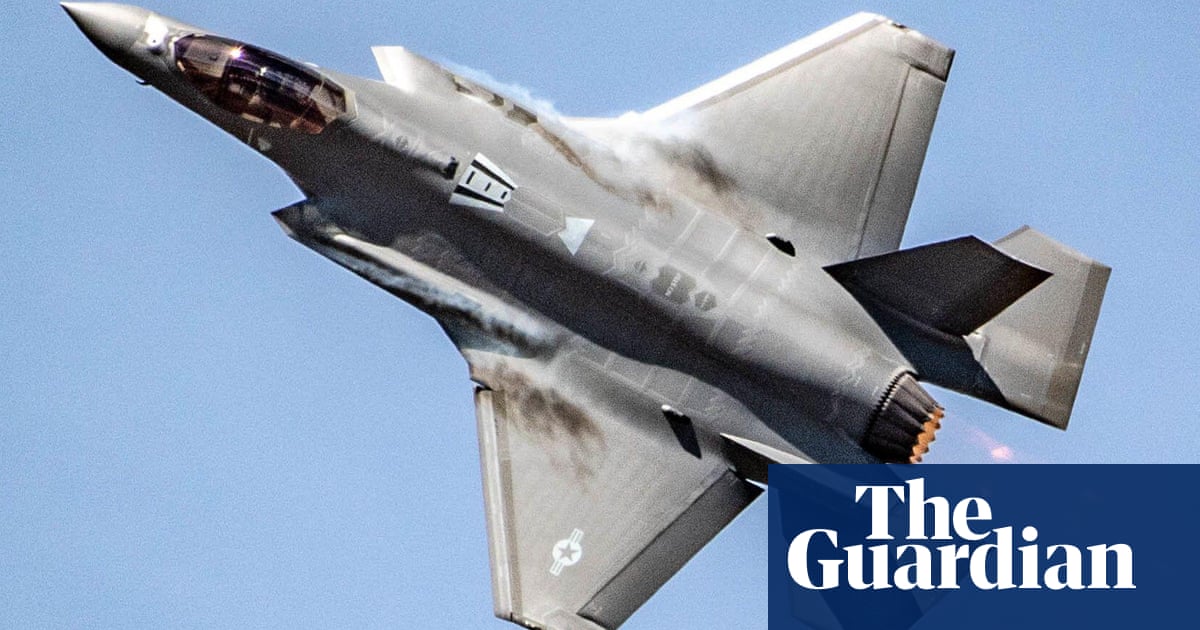On the eve of the 1991 Gulf war, a TV reporter asked the US commander Norman Schwarzkopf if he would topple Iraq’s Saddam Hussein. Stormin’ Norman replied with a memorable succinctness: “Easy say. Hard do.”
Schwarzkopf knew what he was talking about. The general was a lifelong student of the Middle East region – he spent some of his childhood years in Tehran – and of military history. Indeed his successful ground-war strategy for Saddam’s defeat in Kuwait was consciously modelled on the flanking tactics used to such devastating effect by the Carthaginian commander Hannibal to defeat the Romans at Cannae in 216BC.
Regime change, now increasingly mentioned in connection with Iran, is the high stakes embodiment of an “easy say, hard do” policy. The world would obviously be a better place without repressive and aggressive regimes like the one in Tehran. But there is no lever that can be easily pulled, no button that can be pressed, that instantly replaces lasting tyranny with lasting happiness. To destroy is not the same as to rebuild.
Instead, regime change is a phrase that too often masks a multitude of enduring troubles and miseries, the majority of them suffered most severely by ordinary people whose regime has been changed. In the west, modern governments and their publics have had to learn this the hard way. The invasion of Afghanistan in 2001 and the Iraq war of 2003 still haunt our politics, years later. The mangled outcome of the so-called Arab spring of 2010-11 is a grim monument to the same naivety.
Yet the wish to see the back of Iran’s theocratic regime is right. Iran is one of the most repressive countries in the world. Arrests and trials are arbitrary. Torture, including flogging and amputation, is endemic. Executions are common. Oppression of women, minorities and migrants is institutionalised. Political activity and free expression are all but impossible.
And the regime’s vicious malignity is not felt just by Iranians. The Islamic Republic has exported its authoritarianism for years, via proxies from Hamas in Palestine and Hezbollah in Lebanon, and now by supplying Russia in Ukraine. It has financed and supported terrorism in the west. Its desire for nuclear weapons, with which it would threaten Israel, whose destruction it seeks, is relentless.
So, if the opportunity presents, why not attempt to supplant such a regime? What’s not to support about its overthrow, especially at a moment when Hamas and Hezbollah, as well as Yemen’s Houthis, are militarily on the back foot and the country is feeling the impact of international sanctions? The early days of Benjamin Netanyahu’s Israeli onslaught on Iran appear to have done significant damage to the regime’s nuclear and military infrastructure, and to have exposed limitations in Iran’s capacity to retaliate and to defend itself. So if not now, when?
The temptation is a very real one. In politics, as in war, the courage to seize the moment can be decisive. Bismarck regarded this as one of the ultimate tests of leadership, and he proved to be a master practitioner. Shakespeare made the same point in Julius Caesar, when Cassius is told: “There is a tide in the affairs of men/ Which, taken at the flood, leads on to fortune.” Remember, though, what happened to Cassius in the end. He lost.
Even so, the Iranian regime’s overthrow would remove an international threat – to Israel in particular, but also to the nations subverted and wrecked by Iran’s proxies. Nuclear proliferation would be set back. The terrorist threat would be disrupted. It would be bad news for Russia, which is eating its way through large amounts of Iranian war material, including drones. It would be a ray of hope for Ukraine. The relief for world shipping and commerce would be immense. Commodity prices might ease significantly.
So it would not be right to dismiss these arguments wholesale, especially if the main reasons for doing so are that Netanyahu is batting for it, or because of anger at Israel’s onslaughts in Gaza, terrible though these unquestionably are. It would be equally shortsighted to oppose Iranian regime change merely because the policy may eventually be embraced by Donald Trump’s unpredictable White House. An enemy of Trump is not thereby our friend.

However, there are more serious and respectable reasons for caution. The first is that regime destruction does not imply successful regime change. It is possible that Israel, with or without Trump’s direct military support, will inflict enough damage on Iran to make it impossible for the regime to function. But what would come next? Neither Israel nor the US has any intention of occupying a defeated Iran in order to run it. The dire lessons of Afghanistan, Iraq and Libya are still vivid. This is not Berlin in 1945.
In his broadcast to Iran this week, Netanyahu said Iranians should shape the new Iran. “We are clearing the path for you to achieve your objective, which is freedom,” he told them. Yet there is no presumptive Iranian government waiting in the wings. A regime promoted by Israel would surely struggle to survive. One backed by the US that allowed Trump and his allies to plunder and enrich themselves at Iran’s expense would do little better. Opposition to the theocratic state may indeed be as widespread as the 80% that Netanyahu claims, but at this point it is underground, inchoate and divided.
A defeated Iran would be a weakened but still extremely large, proud and important state. It would be rich in natural resources, an energy superpower, and still well armed. Its ethnic and religious mix would seize the opportunity to assert their rights and claims. Adherents and apparatchiks of the ancien regime would, however, be everywhere, not least in the armed forces and the police. These are precisely the ingredients that could signal an explosion of civic instability, possibly lasting for years.
Do not forget, either, that Iran still remains a revolutionary regime. Rulers who come to power by completely overthrowing their predecessors, as the Iranian Islamists did in 1979, can become paranoid regimes. They may never surrender, as Ayatollah Khamenei insisted yesterday. But a weakened and angry Islamic republic looks as likely an outcome as a replaced one.
History tells us that regime change for revolutionary regimes is a particularly messy business. The overthrown regimes may have been difficult to establish in the first place. But the ones that replace them do not have it easy either. Think France in 1815 or Russia in 1991. Germany was only rescued from the abyss of Nazism through a combination of clear international agreement, US economic aid, military occupation and pragmatic compromises with German institutions. The outcome was a collective triumph. It was, though, an exceptionally rare event. Nothing like it is on the cards in Iran. Be careful what you wish for.
-
Martin Kettle is a Guardian columnist

 3 months ago
56
3 months ago
56

















































